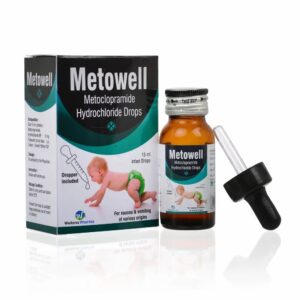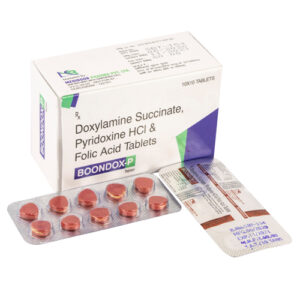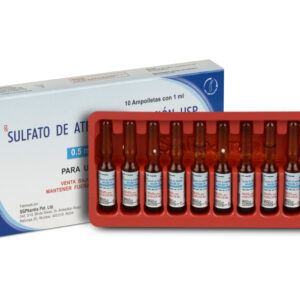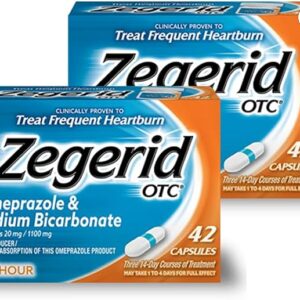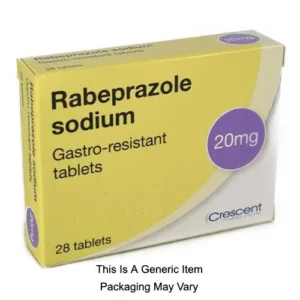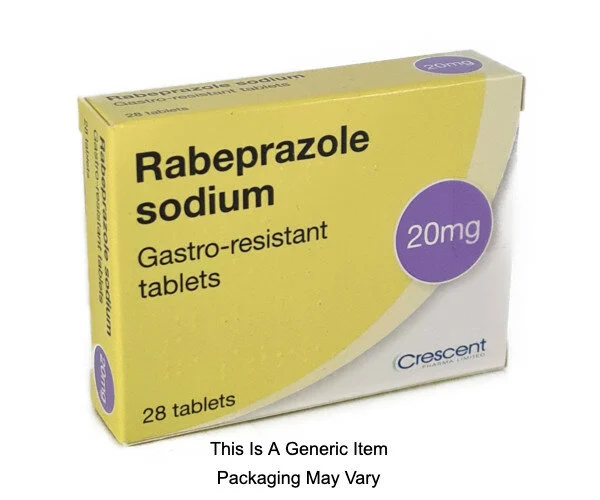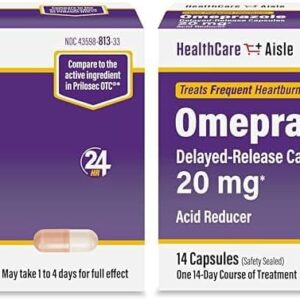-
Metoclopramide Hydrochloride
Metoclopramide Hydrochloride is a dopamine antagonist used to treat nausea, vomiting, and delayed gastric emptying.
Applications:
-
Treats nausea and vomiting from various causes, including chemotherapy and migraines.
-
Manages gastroparesis by enhancing stomach motility.
-
Used for GERD when other treatments fail.
Side Effects:
-
Common: drowsiness, fatigue, restlessness.
-
Serious (rare): tardive dyskinesia (involuntary movements), Parkinson-like symptoms, depression.
Br120.00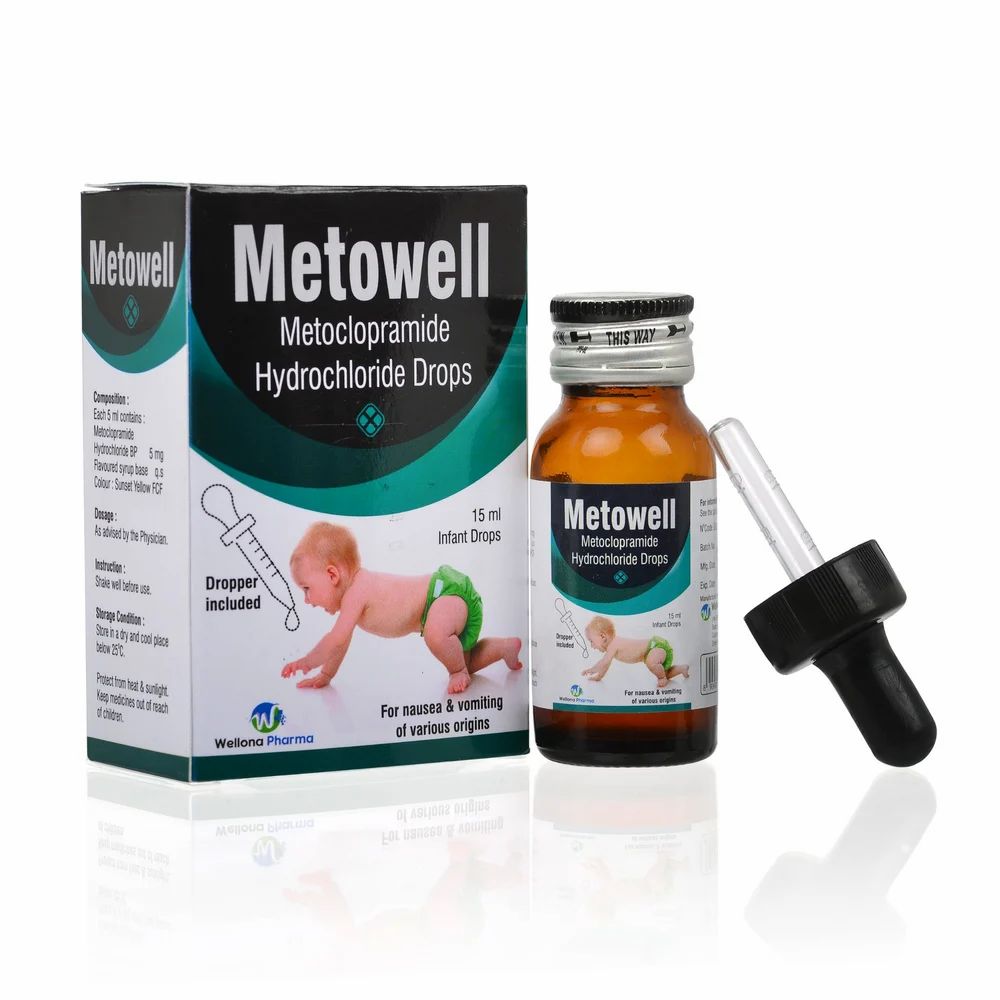
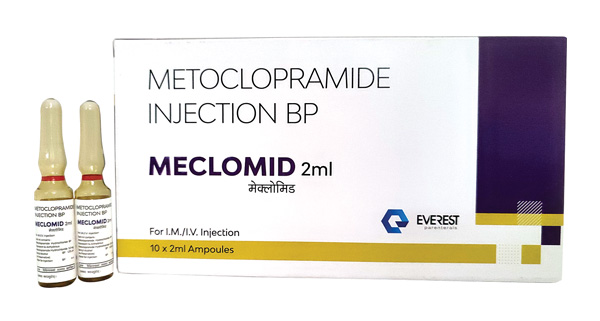
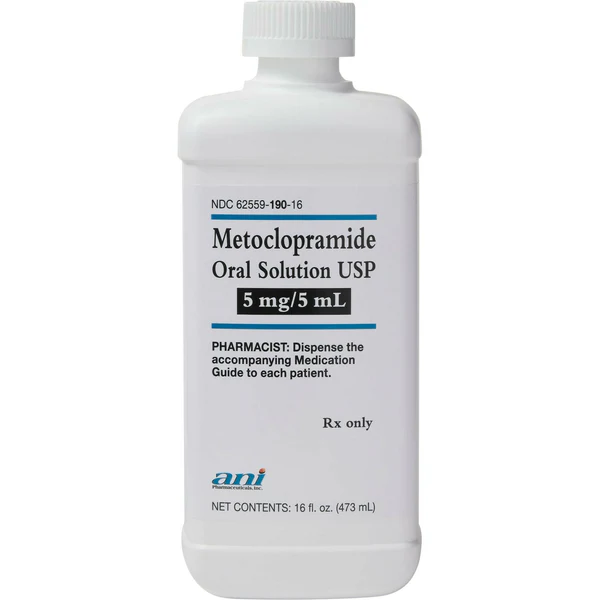

Metoclopramide Hydrochloride
Br120.00 Select options This product has multiple variants. The options may be chosen on the product page -
-
Granisetron Hydrochloride
Granisetron Hydrochloride is a 5-HT3 receptor antagonist used to prevent and treat nausea and vomiting.
Applications:
-
Prevents nausea and vomiting from chemotherapy and radiation therapy.
-
Used postoperatively to manage nausea and vomiting.
Side Effects:
-
Common: headache, constipation, dizziness.
-
Serious (rare): QT prolongation, allergic reactions.
Br120.00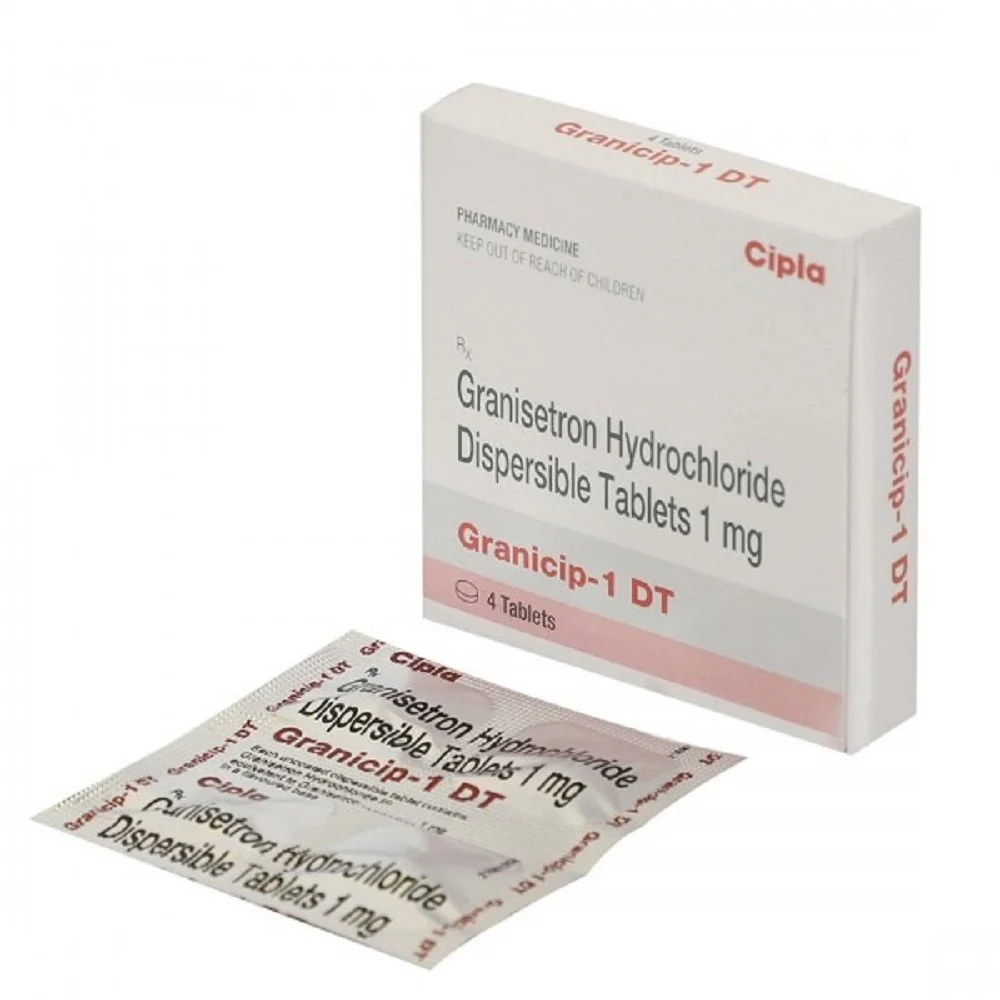
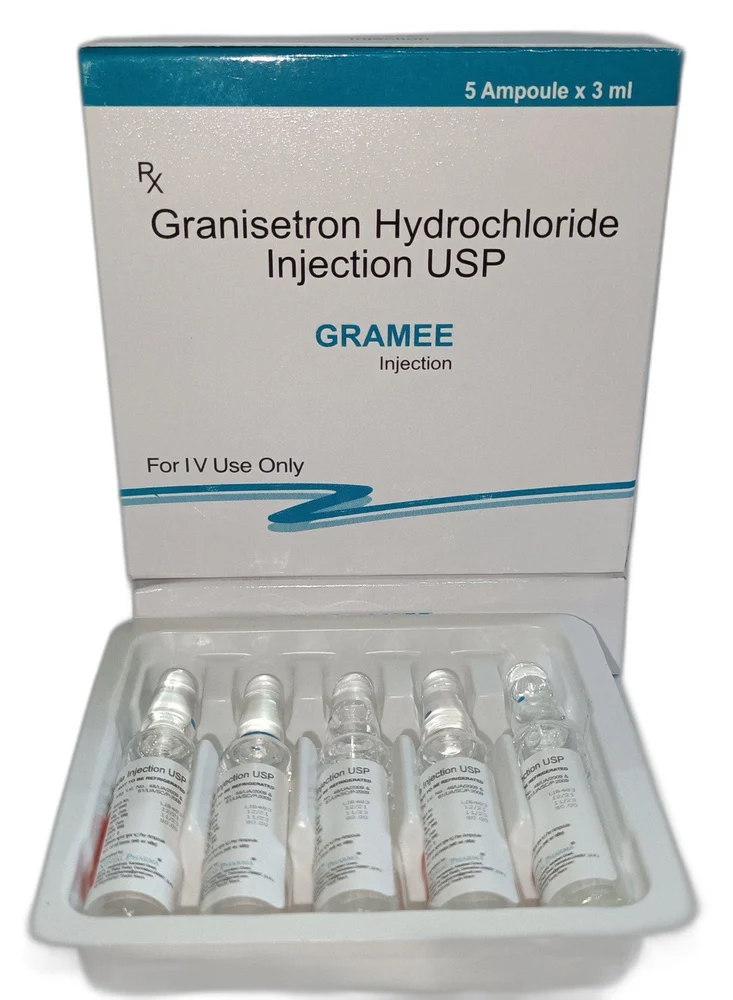
Granisetron Hydrochloride
Br120.00 Select options This product has multiple variants. The options may be chosen on the product page -
-
Doxylamine succinate + Pyridoxine Hydrochloride
Doxylamine Succinate + Pyridoxine Hydrochloride is a combination used to treat nausea and vomiting during pregnancy (morning sickness).
Applications:
-
First-line treatment for morning sickness in pregnant women.
-
Helps reduce nausea and vomiting without harming the fetus.
Side Effects:
-
Common: drowsiness, dry mouth, dizziness, and headache.
-
Serious (rare): allergic reactions, confusion, and difficulty urinating.
Br120.00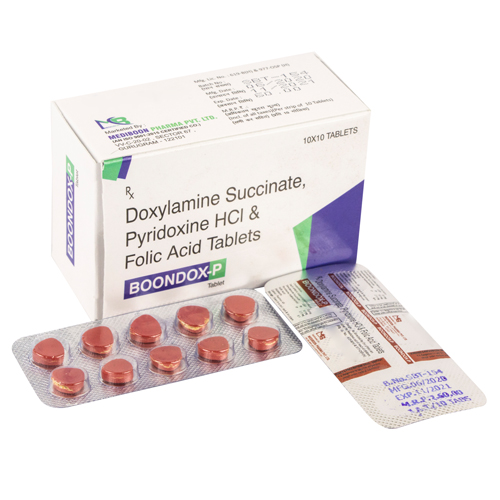
Doxylamine succinate + Pyridoxine Hydrochloride
Br120.00 Select options This product has multiple variants. The options may be chosen on the product page -
-
Atropine Sulphate
Applications:
-
Pre-Anesthesia: Reduces saliva and respiratory secretions before surgery.
-
Bradycardia: Emergency treatment for abnormally slow heart rate.
-
Poison Antidote: Countacts organophosphate or nerve agent poisoning.
-
Ophthalmic Use: Dilates pupils for eye exams or inflammation treatment.
-
GI Disorders: Relieves spasms in irritable bowel (rarely used today).
Side Effects:
-
Common: Dry mouth, blurred vision, rapid heartbeat, dizziness.
-
Serious:
-
Hallucinations/confusion (high doses)
-
Urinary retention
-
Glaucoma attacks (with eye drops)
-
Dangerous tachycardia (overdose)
-
Note:
-
IV/IM use only in emergencies (hospital/EMS).
-
Reverses life-threatening cholinergic toxicity (e.g., pesticide poisoning).
Br120.00
Atropine Sulphate
Br120.00 Select options This product has multiple variants. The options may be chosen on the product page -
-
Omeprazole + Sodium Bicarbonate
Omeprazole + Sodium Bicarbonate is a combination used primarily for the treatment of gastroesophageal reflux disease (GERD), acid reflux, and peptic ulcers, similar to sucralfate, but it works differently.
Applications:
- Treats GERD, heartburn, and acid reflux.
- Helps heal and prevent ulcers by reducing stomach acid production.
- Used to manage Zollinger-Ellison syndrome, where excess acid is produced.
Side Effects:
- Common: headache, nausea, diarrhea, and abdominal pain.
- Rare but serious: severe allergic reactions, kidney problems, and bone fractures with long-term use.
- Prolonged use can lead to vitamin B12 deficiency and low magnesium levels.
Unlike sucralfate, which forms a protective layer over ulcers, omeprazole with sodium bicarbonate works by reducing stomach acid to help heal and prevent damage.
Br120.00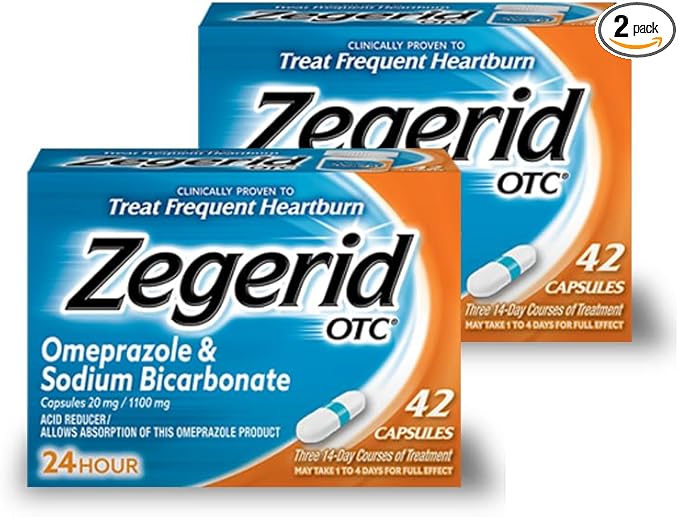
Omeprazole + Sodium Bicarbonate
Br120.00 Select options This product has multiple variants. The options may be chosen on the product page -
Rabeprazole sodium
Applications:
- Used to treat gastroesophageal reflux disease (GERD), erosive esophagitis, and peptic ulcers.
- Reduces stomach acid, promoting healing of the esophagus and ulcers.
- Effective in treating Zollinger-Ellison syndrome (excessive acid production).
Side Effects:
- Common side effects include headache, diarrhea, nausea, and abdominal pain.
- Rare side effects include low magnesium levels, bone fractures, and kidney issues, especially with prolonged use.
Rabeprazole sodium is a helpful treatment for acid-related gastrointestinal issues but, like other proton pump inhibitors, may lead to mild side effects such as headaches or stomach discomfort. Serious side effects are uncommon but should be monitored, especially during long-term use or in individuals with kidney concerns.
-
Omeprazole
Applications:
- Used to treat gastroesophageal reflux disease (GERD), peptic ulcers, and conditions related to excess stomach acid.
- Helps reduce acid production in the stomach, promoting healing and alleviating symptoms like heartburn.
Side Effects:
- Headache, diarrhea, nausea, and abdominal pain.
- In rare cases, it can cause kidney issues, low magnesium levels, or vitamin B12 deficiency with long-term use.
Omeprazole is effective in managing acid-related gastrointestinal conditions but may cause mild side effects like headache and stomach discomfort. Serious side effects are rare but should be monitored, particularly in individuals with kidney problems or those who use it long-term.
Br120.00
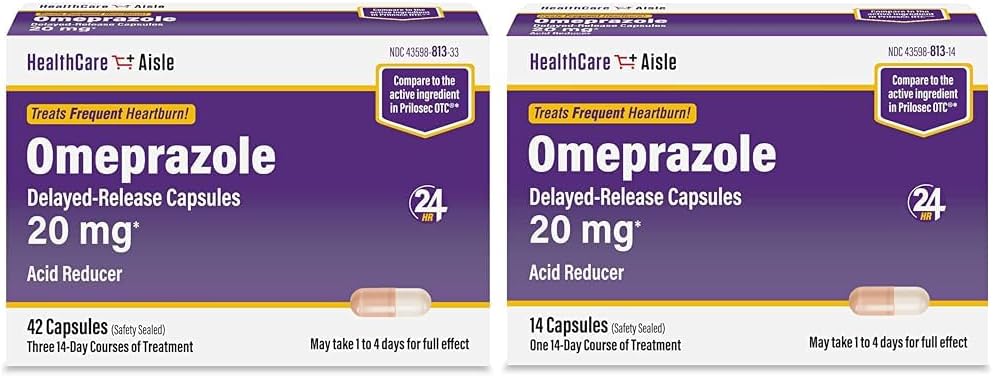
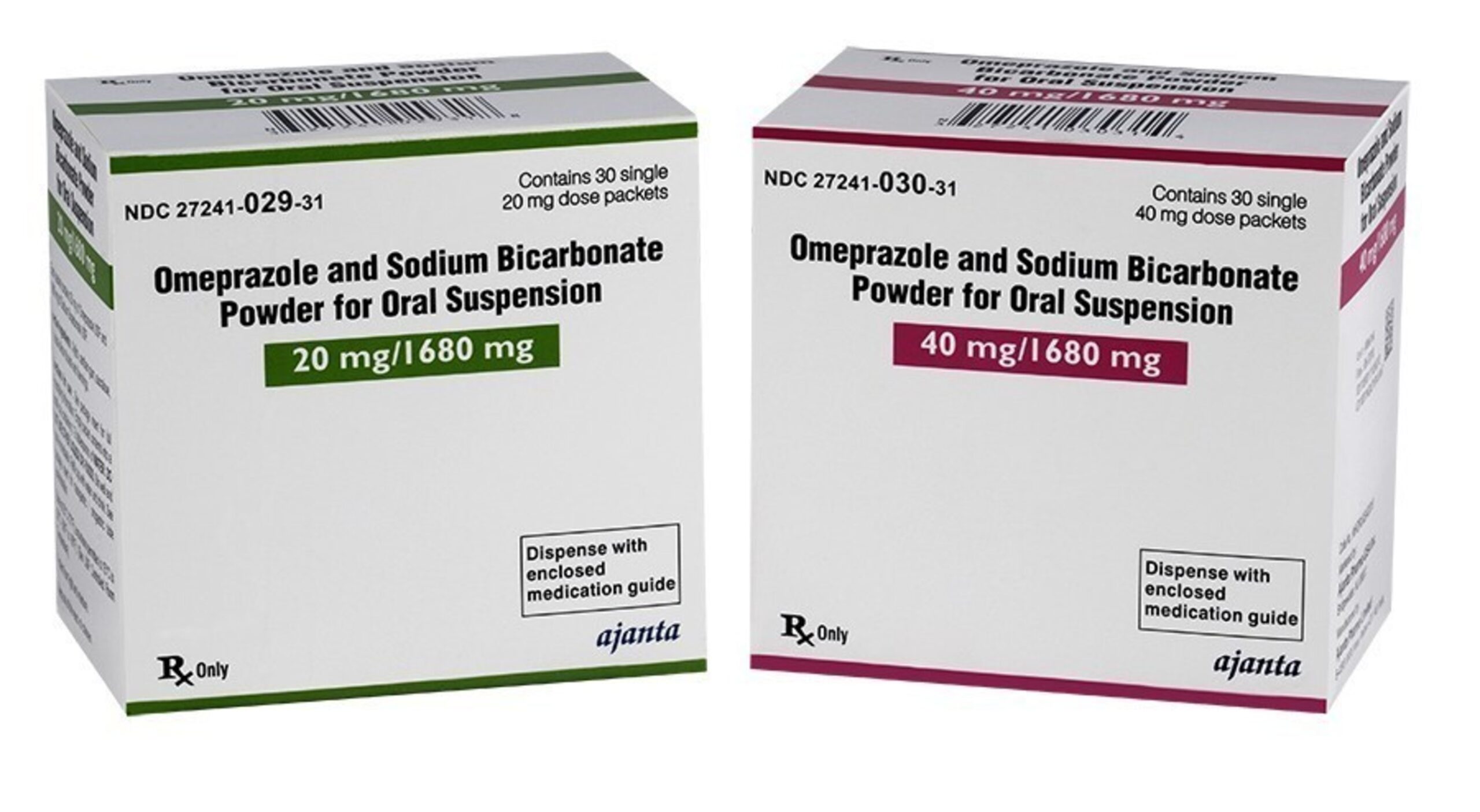

Omeprazole
Br120.00 Select options This product has multiple variants. The options may be chosen on the product page

